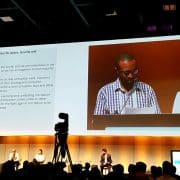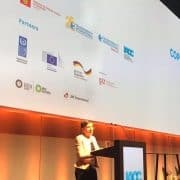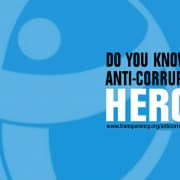|
Getting your Trinity Audio player ready...
|
Corruption Watch, in a new report released today, identifies the vulnerabilities in the mining application process, which give rise to corruption between mining companies, government authorities and community leaders, often to the detriment of mining-affected communities.
As part of a Transparency International (TI) global initiative involving 20 TI chapters, the Mining for Sustainable Development Research Programme (M4SD) report raises important issues that arise at the start of the decision-making chain, when governments award mining rights, contracts, permits and licences. This report comes at a time of extreme volatility and uncertainty in the South African mining sector. By focusing on the four types of applications, namely mining permits, mining rights, prospecting rights and environmental authorisations, Corruption Watch aims to raise public awareness and encourage good practice in mining activities.
This report constitutes an assessment of current practices and identifies the gaps that allow for the current levels of corruption and maladministration. One of the problems identified is the low usage and unreliable accessibility of the online portal administered by the South African Mineral Resource Administration System (SAMRAD), which results in the manual lodging if applications – itself a corruption risk. The failure of the Department of Mineral Resources (DMR) to address the system inadequacies lends itself to a perpetuation of corruption.
The timeframes provided by the Mineral and Petroleum Resources Development Act (MPRDA) are not adhered to, resulting in long delays which again play into the hands of corrupt individuals.
Where the MPRDA falls short is in the limited scope for consultations with communities, and there are no systems in place to ensure that meaningful consultation is taking place. As a result, these often end up as tick-box exercises between mining companies and traditional leaders, who frequently profit at the expense of local communities, who should benefit from such arrangements.
Another challenge for local mining communities is that Section 10 notices, prescribed by the MPDRA, are in English only, which means that community members frequently are not given a chance to grasp these matters in their own languages. Additionally, the regional mining development and environmental committees, comprised of DMR officials and other relevant government departments, are required to meet with objectors and listen to concerns about prospective mining activities. However, these are not standard procedure in every regional office and research revealed that some community members had not even heard of them.
The necessity for the minister and other senior staff to delegate authority for granting licences means that some DMR officials have an inordinate amount of discretionary power, without clear guidelines on how power is to be exercised, which is problematic.
The introduction of social and labour plans (SLPs) into the regulatory framework was intended as a corrective measure to address the deep disparity in the distribution of wealth amongst mineworkers and communities on the one hand, and mining management on the other. The lack of proper monitoring of SLPs by government means that mining companies are not held accountable for their inaction or failure to invest in mining communities.
The contentious matter of environmental authorisations was included in the research report, in order to focus on the lack of knowledge or expertise to manage environmental authorisations, often complex and intricate. The mandatory environmental impact assessments (EIAs) to evaluate environmental impacts are also frequently problematic as practitioners hired to undertake the EIAs are mostly hired by mining companies and therefore not impartial, and community members are given only 30 days to respond to technical and often incomprehensible reports.
Another weakness is the lack of procedural uniformity between regional offices, so that there is inconsistent regard for and implementation of the law. The M4SD report highlights the lack of capacity at the DMR, which results in a backlog of applications, a rise in corruption, and an overall decline in investment. Coupled with this is the shortage of relevant skills and lack of sufficient knowledge of the MPRDA within the department, which leads to under-qualified individuals performing critical tasks.
The report also makes mention of the manipulation sometimes of BBBEE partnerships and legislation, where specific BEE partners are favoured and licences are not granted if they are not appointed.
Corruption Watch concludes its report with recommendations for the three target groups involved in the application process, namely communities and civil society, government and mining companies. In summary, these are:
Recommendations for communities and civil society
- It is essential that provision be made to educate communities on their rights and roles in the application process in order to bring material change in the sector; and
- Traditional leaders are urged to resist and report corruption and maladministration in their association with the state and corporate representatives, to ensure that mineral wealth reaches communities.
Recommendations for government
- Attention needs to be given to internal capacity constraints to cut down on delays in processing applications, and reduce existing backlogs.
- There is a need to implement and streamline SAMRAD, as an online cadastre system will ensure transparency of information and greatly reduce the possibility of corruption.
- Technical capacity of state officials should be boosted and existing experts in the mining sector deployed , as well as the adoption of new technological advancements.
- Monitoring and evaluation should be embedded into the application system to ensure that mining companies honour their social and labour commitments to communities; and
- A review of the mining application process is needed, with an emphasis on public participation and consultation.
Recommendations to mining companies
- Consultations with communities need to be fair, meaningful, inclusive and transparent, and mining companies are urged to honour their social commitments to communities.
- Companies must take a decisive stance against corruption and maladministration in order to contribute to change in the sector, and reduce reputational damage; and
- Companies must follow the correct legislative processes throughout the application process, and commit to full transparency and exposure of corrupt activities, which should be reported to the relevant authorities.
The report released today is a summary of the main report and highlights the central findings and recommendations. The full report can be accessed here. In addition, there are three infographics documenting the application process which can be found here.
Contact
Phemelo Khaas Cell: 083 763 3472 E-mail: phemelok@corruptionwatch.org.za








